2 protesters killed as Sudan security forces clash with anti-coup demonstrators in capital, other cities
Two protesters have been killed and many others injured as Sudanese security forces clashed with anti-coup demonstrators in the capital Khartoum and other major cities.
The Central Committee of Sudanese Doctors said on Sunday that the new fatalities brought to 56 the overall death toll in protests since the coup was staged on Oct. 25.
According to Reuters, the committee added that the first man was in his twenties and died of injuries to the head in the capital, Khartoum, while the second man died of gunshots to the chest in Omdurman.
Sunday rallies marked the 12th round of major protests since the coup.
Security forces fired tear gas at demonstrators in Khartoum as protesters marched towards the presidential palace.
As with previous demonstrations, the authorities erected roadblocks, with shipping containers blocking Nile River bridges between the capital and outlying areas. All bridges directly connecting to Khartoum were also closed.
Internet, cell phones and mobile services appeared to be disrupted since Sunday morning ahead of planned protests against military rule, the first of the new year, and security forces were perched on armored vehicles with heavy machine guns watching passers-by.
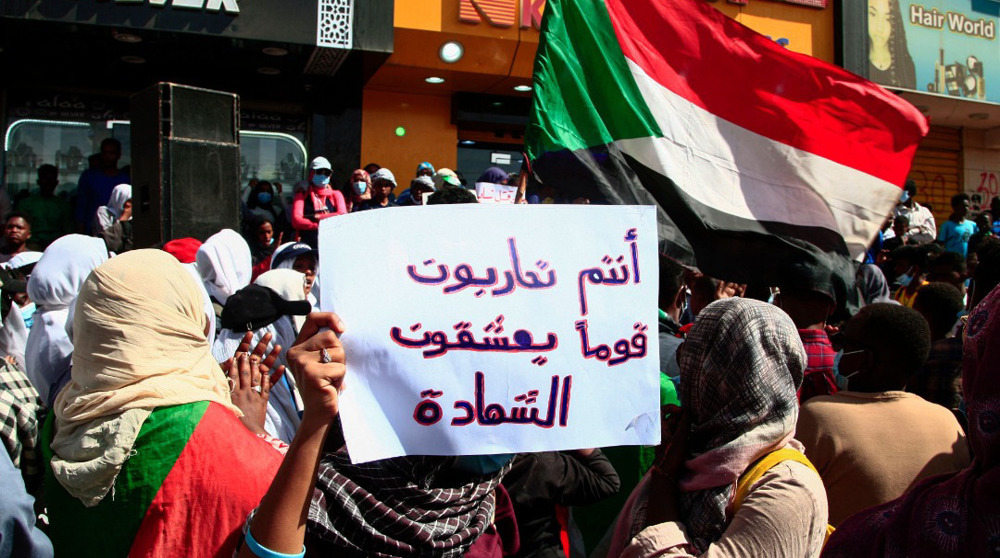
amid calls for pro-democracy rallies in memory of the martyrs killed in recent protests. (Photo by AFP)
Activists use the internet for organizing demonstrations and broadcasting live footage of the rallies. Some people managed to post images on social media showing protests in several other cities, including Ad-Damazin and Port Sudan.
More than two years ago, massive anti-government demonstrations hit Sudan, mostly over economy. The protesters, youths for a large part, demanded the resignation of then President Omar al-Bashir.
Bashir was ultimately deposed through a military coup in April 2019, after ruling over the country for three decades. In August the same year, a transitional civilian-military administration was founded to run the country.
However, a military coup led by Sudan's military chief and de facto leader Abdel Fattah al-Burhan was staged on October 25 that dissolved the fragile government. Prime Minister Abdalla Hamdok was detained and put under house arrest in a move that infuriated the Sudanese and sparked international outcry, including from the UN Security Council. Other civilian leaders were also held in military detention.
The ensuing crackdown against anti-coup protesters has left 49 people dead and hundreds wounded since October 25, according to the Central Committee of Sudanese Doctors.
Hamdok was later released and on November 21 signed a power-sharing deal with the Burhan-led junta, according to which Hamdok would continue his career as prime minister, all political prisoners detained during the coup would be released, and a 2019 constitutional declaration would be the basis for a political transition. According to the deal, July 2023 has been set as the date for Sudan's first free elections since 1986.
According to the pro-democracy Doctors' Committee group, thousands of Sudanese came out to demonstrate "in memory of the martyrs". At least 54 protesters killed and hundreds injured in street violence since the coup.
Al Hadath TV quoted an adviser to Burhan as saying the military would not allow anyone to pull the country into chaos and that continued protests were a "physical, psychological, and mental drain on the country" and "would not achieve a political solution."
Activists have been holding a campaign of street demonstrations against the army's takeover in more than two months.
On Thursday, six people were shot dead and hundreds of others wounded after Sudan’s security forces clashed with thousands of anti-coup protesters in the country’s major cities, including capital Khartoum and Omdurman.
Tens of thousands of anti-coup protesters filled the streets in Khartoum and its twin city Omdurman on Thursday, chanting “No to military rule” as they rallied demanding a transition to a civilian government. They also shouted “The revolution continues,” beating drums and waving flags.
Activists believe that 2022 will be "the year of the continuation of the resistance" in posts on social media.
They said justice should be applied for those killed since the coup and the more than 250 who died during the mass protests that began in 2019 and paved the way for the toppling of Bashir.
In a televised speech on Friday, Burhan said disputes over power and the loss of lives meant everyone "should use the voice of reason.
"The only way to rule is by popular mandate through elections," he added.
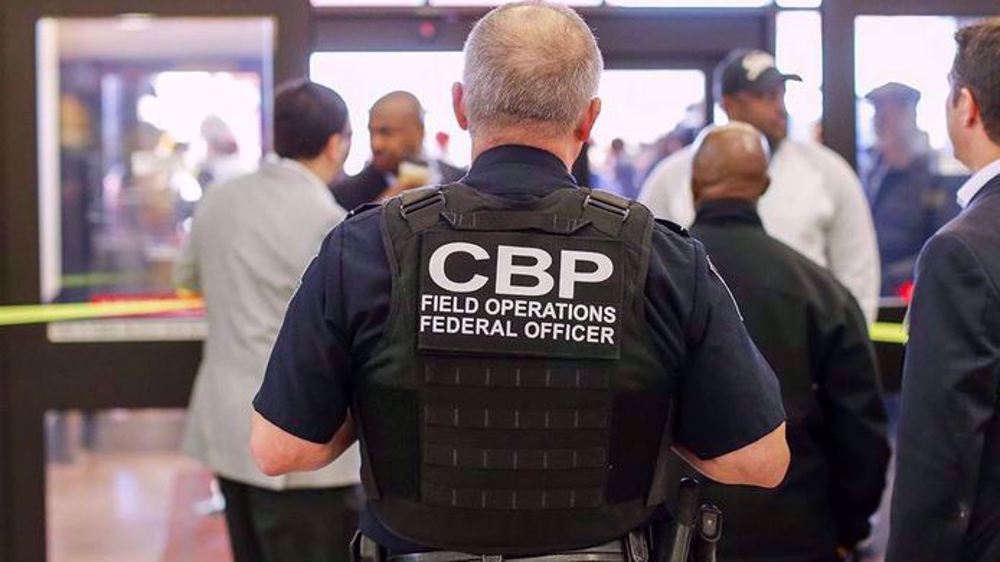
US revokes all visas held by South Sudanese passport holders
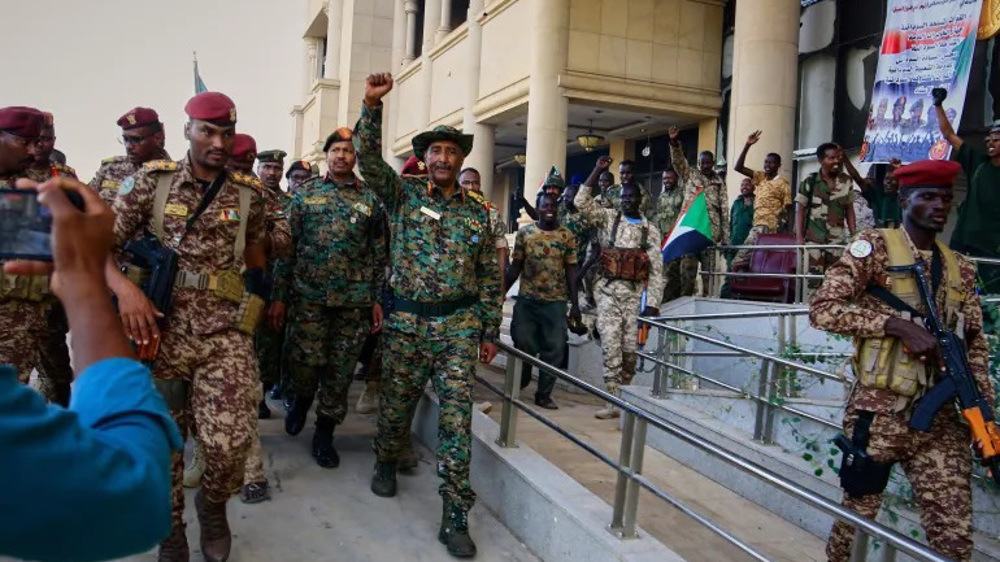
Sudan army takes full control of Khartoum amid RSF defiance
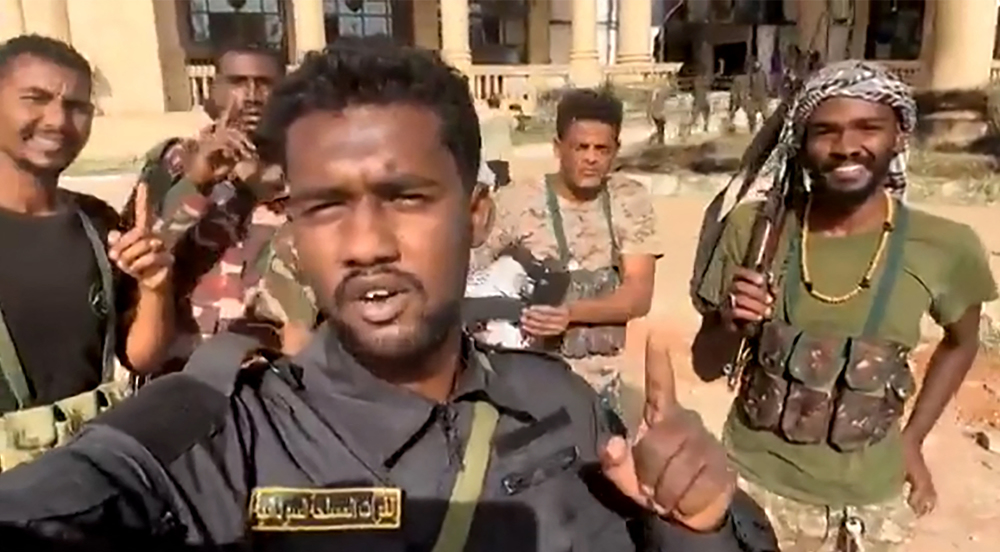
Sudan army recaptures Khartoum presidential palace
China enacts tariffs, says Trump’s trade war ‘will end in failure’
Sudan takes UAE to World Court over 'genocide' in Darfur
Ex-official: US cares about human rights only to target adversaries
'Not much time left' to save Palestinians, warns UN Rapporteur
Scholar: Without strong response, Arabs risk falling under Israeli control
VIDEO | Press TV's news headlines
1,000 Israeli aircrew defy threat of sack to urge end to Gaza war
Trump decimates US healthcare


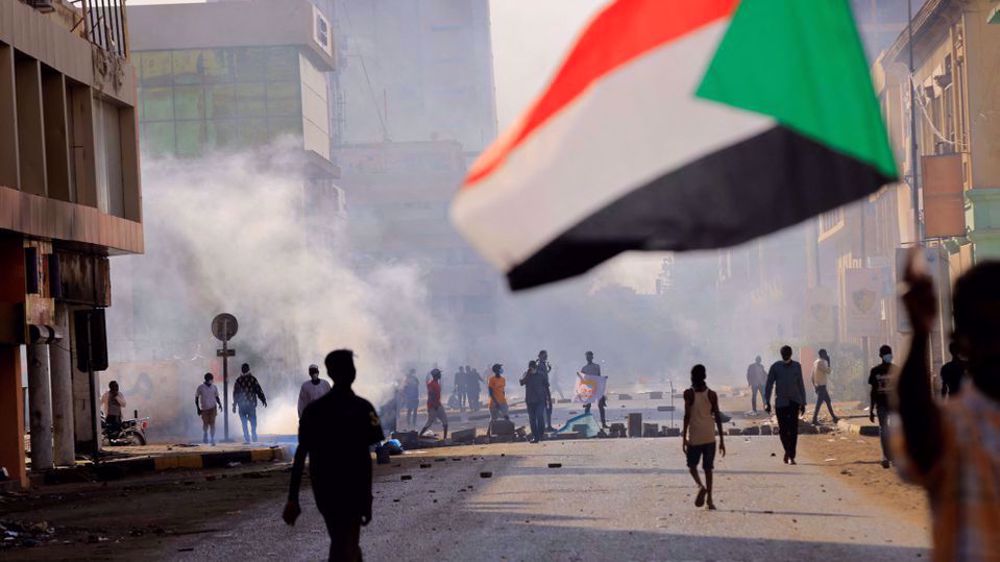
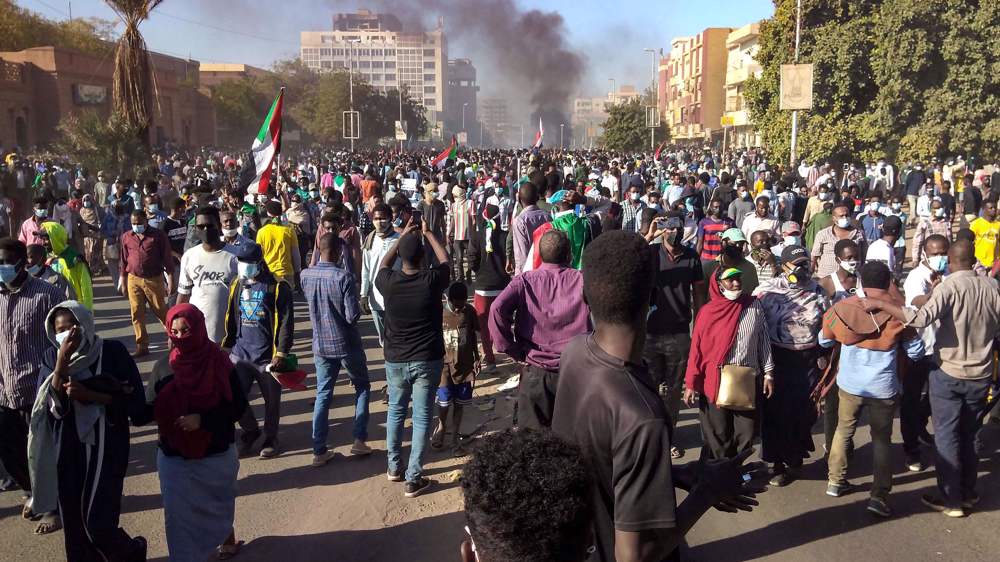




 This makes it easy to access the Press TV website
This makes it easy to access the Press TV website